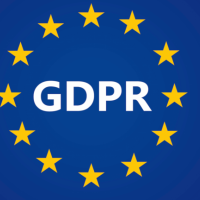GDPR compliance
Tigermeeting products use an unique, high watermark distributed database technology - therefore the information and the configuration itself are distributed between the screen devices within the local network infrastructure only.
There is no need for on premises, central or external data store - therefore it does not exist.
Booking and overview screens:
- Calendar operations - like booking on the screens and presenting the calendar events on the booking and overview screens are API based request/response type of operations between the online calendar supplier (like Microsoft or Google) for display purpose only. No personal data is stored on the devices or transferred elsewhere.
Admin App:
- The Tigermeeting Admin app - itself - becomes part of the distributed database just when an Admin logs in on the network - and no information is stored on the Admin's computer.
- However, the Admin users' login credentials and the customers' licence information are stored in the Tigermeeting cloud (licence server, how we call it) in hashed format using high security cryptography algorithm. This information is used for the admin authentication.
- In case, the customer chooses so - the Tigermeeting cloud can be used to store the customers' network backup - the infrastructure settings snapshot in fully encrypted format - that is used for network restore functionality.
- In case, the customer chooses so - the Tigermeeting cloud can be used to store customer related files. These files are URL protected, but not encrypted in order be accessible for the customer screens' consumption purpose.
Analytics:
- If the customer chooses so - Tigermeeting cloud is used to store the collected, anonymous meeting room usage information that is presented under the meeting room Analytics pages - visualizing the room usage statistics, booking tendency, company's booking behavior providing useful information for better meeting room utilization and the hardware health itself.
- The events are anonymous - in a sense, that they are tied to the devices' MAC address or Android ID only - and do not contain any meeting related information (like user, organizer, subject, location, room etc).
- The events are sent by the Tigermeeting applications when the analytics/event log feature is turned ON and the devices are operational during the event. For more information, please read the Admin App documentation and the Analytics disclaimer at the bottom of every Analytics page.
Web cookies:
- Tigermeeting does not use any cookies that contain personal data - read more about in Cookie Policy.
On explicit request, all accumulated event logs and other customer data can be requested to be presented/delivered or permanently deleted.
For more information, please read the Tigermeeting Privacy Policy that complies with GDPR, CCPA, PIPEDA, CDR, LGPD and POPI regulations.
Tigermeeting with its on-premises, decentralized architecture, naturally satisfies the national autonomy of data and information systems compliance requirements such as:
- China's Cybersecurity Law and Data Security Law, requiring certain types of data to be stored and processed within the country to maintain national security and autonomy
- India's Digital Personal Data Protection Bill, which includes provisions for data localization and aims to ensure that critical data remains within the country.
- Russia's Federal Law on Personal Data (FZ-152) explicitly requires that all personal data of Russian citizens be initially collected and stored in databases physically located within the Russian Federation.
- Vietnam's Cybersecurity Law and its implementing decrees (like Decree 53) require both domestic and certain overseas companies in specific sectors (e.g., social media, e-commerce, online payments) to store certain types of user data in Vietnam for a specified period.
- Indonesia's government regulations (like GR71) mandate that operators of "public scope" electronic systems must establish data centers and disaster recovery centers within Indonesia, effectively requiring local data storage.




